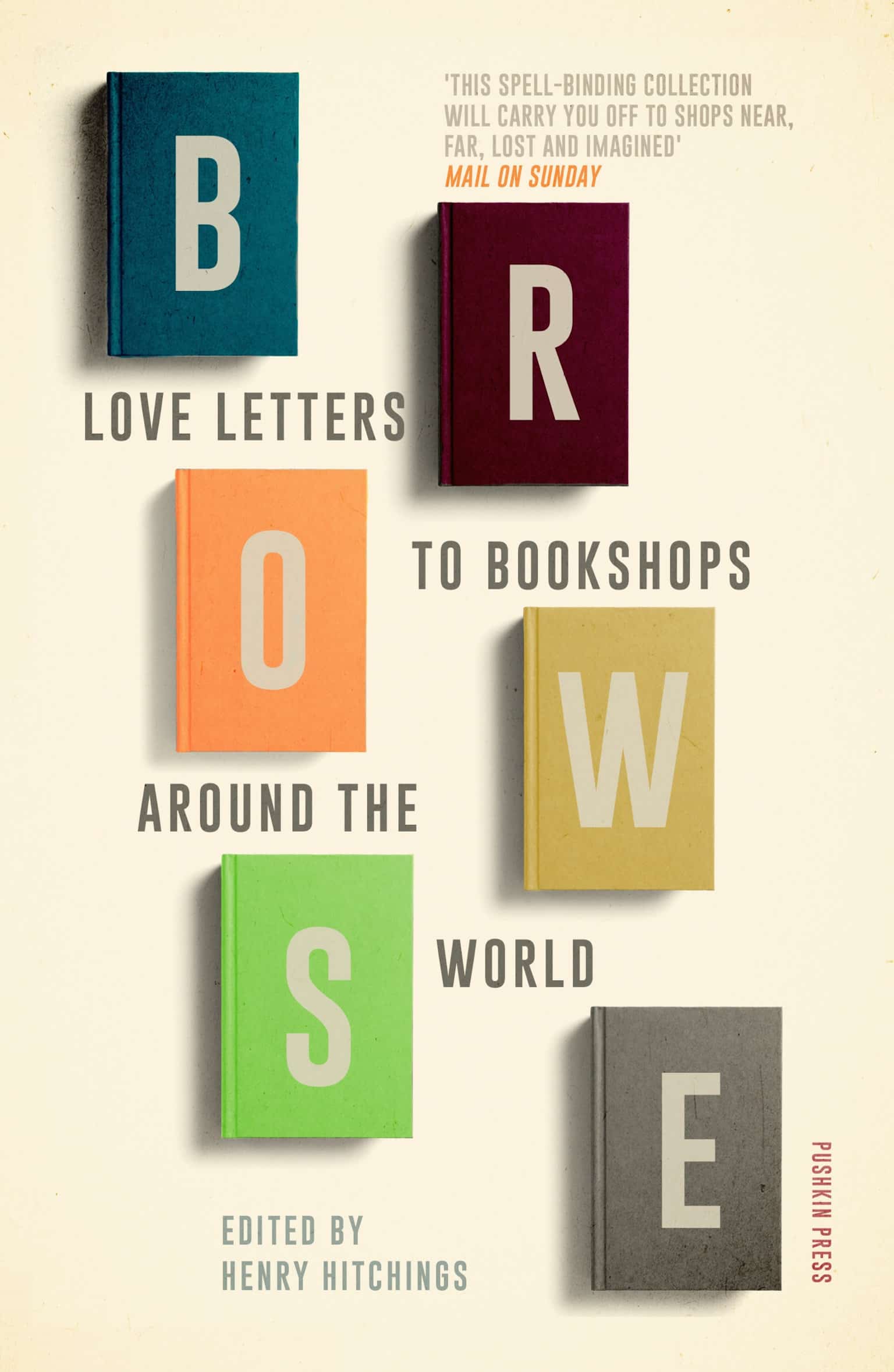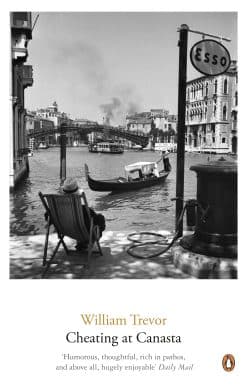Browse: Love Letters to Bookshops Around the World
| by |
|---|
16.95 JOD
Please allow 2 – 5 weeks for delivery of this item
Description
A celebration of the greatest kind of shop in the world, by an award-winning cast of writers including Ali Smith, Michael Dirda, Elif Shafak and Daniel Kehlmann. A cabinet of curiosities, a time machine, a treasure trove – we love bookshops because they possess a unique kind of magic. In Browse, Henry Hitchings asks fifteen writers from around the world to reveal their favourite bookshops, each conjuring a specific time and place. These inquisitive, enchanting pieces are a collective celebration of bookshops – for anyone who has ever fallen under their spell. Contributors include Alaa Al Aswany, Stefano Benni, Michael Dirda, Daniel Kehlmann, Andrey Kurkov, Yiyun Li, Pankaj Mishra, Dorthe Nors, Yvonne Adhiambo Owuor, Elif Shafak, Ian Sansom, Iain Sinclair, Ali Smith, Saša Stanišic, and Juan Gabriel Vásquez.A dazzling collection of original essays about the bookshop by fifteen bestselling international authors.
Additional information
| Weight | 0.21 kg |
|---|---|
| Dimensions | 1.65 × 12.95 × 3.52 cm |
| by | |
| Format | Paperback |
| Language | |
| Pages | 256 |
| Publisher | |
| Year Published | 2019-8-6 |
| Imprint | |
| Publication City/Country | USA |
| ISBN 10 | 1782272968 |
| About The Author | Henry Hitchings is an award-winning writer, reviewer and critic. He has written for the Guardian, London Review of Books, TLS, Financial Times and New Statesman, and is currently the Evening Standard's theatre critic. He is the author of several acclaimed books on language, literature and culture, including Dr Johnson's Dictionary, How to Really Talk About Books You Haven't Read and The Language Wars. In 2008, he was shortlisted for the title of Sunday Times Young Writer of the Year, and in the same year his book The Secret Life of Words won the John Llewellyn Rhys Prize and the Somerset Maugham Award. |
"Lives up to its inviting title." – Times Literary Supplement "Very worthwhile but not too worthy, this is a timely call to arms." – Monocle 'All these writers convey the magic of bookshops, while also making their vulnerability in recent times a recurrent theme.' – Guardian 'If you have ever lost yourself in a bookshop, felt the world fall away as you took a book off the shelves, this spell-binding collection will carry you off to shops near, far, lost and imagined.' – Mail on Sunday 'Everywhere bookshops are fast disappearing. Sixteen writers from around the world remind us why we should cherish them at all costs.' – Spectator ‘A lovely collection of touching and personal accounts of books and bookshops. Each author’s writing style is unique and transports you across the globe.’ — Cub Magazine'In celebrating bookshops, Browse heralds humanity, with all its glorious eccentricities.' – Country Life |
|
| Excerpt From Book | From time to time over the past few years I’ve done volunteer stints a few hours a week selling books at our local Amnesty International second-hand bookshop, Books for Amnesty. I live in a university town in the south of England and the book donations that come in, sometimes seven or eight in a plastic bag, sometimes a whole vanful, a house clearance, someone’s whole library, are endlessly interesting, tend towards the eclectic and are almost always unexpected repositories of the lives they’ve been so close to. Open this copy of Ballerinas of Sadler’s Wells (A. & C. Black Ltd, 1954) with its still bright-orange-after-sixty- years cover and its black and white photo of Margot Fonteyn on the front, its original price of six shillings on the back (now selling at £2). In blue ink on its first page, in neat child’s handwriting: Christmas 1954 To Caroline From Christopher. Tucked in beside this there’s a postcardof a swaggering tabby cat wearing a collar, and written on the back of it in an adult hand in faded blue, DARLING CAROLINE, PLEASE do send me a list of things you would like to have so that I can have some help to find YOU a birthday present. I shall be stopping at LIZZIE’S next week so please tell Nannie that my address will be Trumpeter’s House. Lots of love xx from Mamma xxxxx I thought Papa’s present from you lovely. Or inside The Book of the Art of Cennino Cennini (Allen and Unwin, 1930) a ticket, single, dated 20th July 1936, Chatham and District Traction Company. Or inside an American first edition of The Buck in the Snow by Edna St Vincent Millay (Harpers and Brothers, 1928) a business card for Miss Katzenberger’s Piano Lessons and an address in Queens, New York. We leave ourselves in our books via this seeming detritus: cigarette cards with pictures of trees or wildlife; receipts for the chemist; opera or concert or theatre tickets; rail or tram or bus tickets from all the decades; photographs of places and long-gone dogs and cats and holidays; once even a photo of someone’s Cortina. Now when I donate books to the shop I have a flick through to make sure that anything tucked into them isn’t something I might mind losing. The volunteers, like the books, are of all ages and all lifewalks. They all have some things in common; they’re doing this for nothing, for Amnesty, most of them because they really love books, many of them because they love theshop, and all of them because they’re community-minded. It’s quiet in there, browsy, passers-by getting out of the rain, regulars who love the place and know that its stock can be curiously timely—it’s not unusual to hear someone exclaim out loud at finding just the book she needs or he’s been looking for all this time—and the occasional rogue, like the slightly drunk man who chatted to me for a bit at the cash desk then said, as he left: I was actually planning on shoplifting from here but since you’re Scottish I won’t. I called after him as he went out the door: If you’re going to shoplift don’t do it from a charity shop, for God’s sake. He gave me a wave and a smile through the window. Here are some of the things he could’ve lifted that day. A Leonard Woolf novel called Sowing, signed inside Elizabeth from Leonard, Christmas 1962 (the Leonard who wrote it?). Another Leonard, a biography of Bernstein, definitely signed by the actual Leonard himself in a sloping hand. A copy of Axel Munthe’s The Story of San Michele, signed and dedicated by Munthe to Lady Astor. A ragged copy of A Girl Like I by Anita Loos, in which someone has scrawled in claw-hand on the first page, pArts Of tHis boOk are VERy sAD. For every book I donate myself—and this is the problem with a shop like this—a new-bought old book or two, or three or four, tend to come home with me. So much for culling. But what can you do, when you pick up Hunter’s Guide to Grasses, Clovers and Weeds, 1978 (now £3); flickthrough it and find out that there are kinds of grass called Timothy and Lucerne, that Timothy came from the US in the 1720s, and Lucerne can’t be hurt by drought because its roots go so deep? Or 1964’s National Rose Society Selected List of Varieties (now £2.50); open it at any page and look what happens: Oberon, Ohlala, Old Pink Moss, Opera. Ophelia. Optimist, the. The entry after Optimist, the, simply says: “See Sweet Repose”. My favourite find so far has been a copy of Lawrence’s Birds, Beasts and Flowers, not worth much in money terms, apparently, being a second edition. But open it and on its first page someone’s stuck a photograph, a young woman in a bathing suit sitting in long grass by the bank of a river, looking in a mirror to do her make-up. Above it, in black ink, in a sweeping hand, F.N.LW. from P.A. Sept. 1933. The first bit of the book has been well-read. The later pages are still uncut. Then there’s the Frescoes from Florence exhibition catalogue 1969, an Arts Council publication covering the late 1960s European tour. This book, I’d noticed, comes in quite regularly. It always sells. When I saw the third or fourth copy come in I picked it up and leafed through it at the desk. “As is explained by Professor Procacci in his introduction, the removal of these frescoes often laid bare the underdrawing, or sinopia, beneath.” I opened it at a page where there was a description of a sinopia in which a woman was holding a small boy by the hand, “later eliminated by the artist, who painted over that portion”.The restorers uncovered him, invisible for centuries, and there all along. |
Only logged in customers who have purchased this product may leave a review.
Related products
-
On backorder 2-5 Weeks to Arrive
12.99 JOD -
On backorder 2-5 Weeks to Arrive
10.71 JOD -
On backorder 2-5 Weeks to Arrive
15.99 JOD -
On backorder 2-5 Weeks to Arrive
10.00 JOD






Reviews
There are no reviews yet.